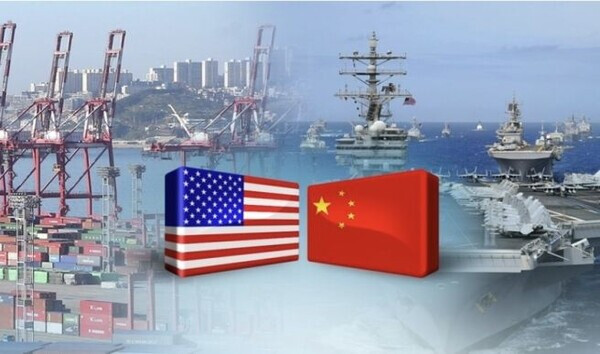
BEIJING/WASHINGTON D.C. – The United States and China have reached an agreement to ease export controls on high-tech products and rare earth elements during their second high-level trade talks, signaling a positive turn in the escalating supply chain conflicts. China's Ministry of Commerce officially announced on the 27th that it had finalized approval of the agreement, implying that rare earth export permits would be reinstated following the U.S.'s withdrawal of restrictions against China.
This agreement is being hailed as a turning point in the trade dispute between the two nations, which had been worsening since the first high-level trade talks in Geneva in May, with both sides maintaining or even tightening export controls on the other. At that time, both countries agreed to establish a "framework" through a joint statement, but stated that further discussions were needed for practical implementation. Following phone calls between the leaders of both countries and the second high-level meeting held in London on September 9-10, a concrete agreement has finally been reached.
A spokesperson for China's Ministry of Commerce stated that after the London talks, working-level officials from both countries communicated closely to finalize the details of the framework. China will now review and approve export applications for rare earths and related products, which had been designated as "dual-use items" and subject to stricter export controls, in accordance with the law. In a reciprocal move, the U.S. is expected to ease its export controls on high-tech products, such as semiconductor design software, that were imposed on China. U.S. President Donald Trump remarked on the 26th, "We just signed with China yesterday," and U.S. Commerce Secretary Howard Lutnick also confirmed completing the signing two days prior (on the 24th), adding that "if China supplies rare earths, U.S. retaliatory measures will be withdrawn."
This agreement is expected to provide much-needed relief to American industries that have been struggling with a shortage of rare earths. Rare earths are critical materials for various advanced industries, including electric vehicle batteries, wind turbines, and advanced weaponry, with China accounting for a significant portion of global rare earth production and processing. Until now, China has tightened rare earth export controls for reasons of resource security and strategic objectives, which has been identified as a primary cause of production disruptions for U.S. companies. The Wall Street Journal pointed out that China's strict export controls still make it difficult for U.S. companies to secure rare earth inventories, and Reuters previously reported that export procedures were delayed due to strict scrutiny of rare earths that could be used for military purposes.
The U.S. anticipates that the resumption of rare earth supplies from China will help establish a stable production base for its key domestic industries and mitigate vulnerabilities in global supply chains. At the same time, China is expected to enhance the competitiveness of its domestic industries by increasing access to U.S. high-tech products.
Both countries have stated their intention to further leverage the role of the U.S.-China economic and trade consultation mechanism, continuously broaden consensus, and strengthen cooperation. Attention is now focused on whether this agreement will merely resolve a trade dispute or serve as an opportunity to reconfirm the economic interdependence between the two nations and build a long-term cooperative relationship. However, the possibility that neither side will completely lift control measures on certain items due to military sensitivities cannot be ruled out, suggesting that delicate tug-of-war in the actual implementation process will likely continue.
[Copyright (c) Global Economic Times. All Rights Reserved.]




























